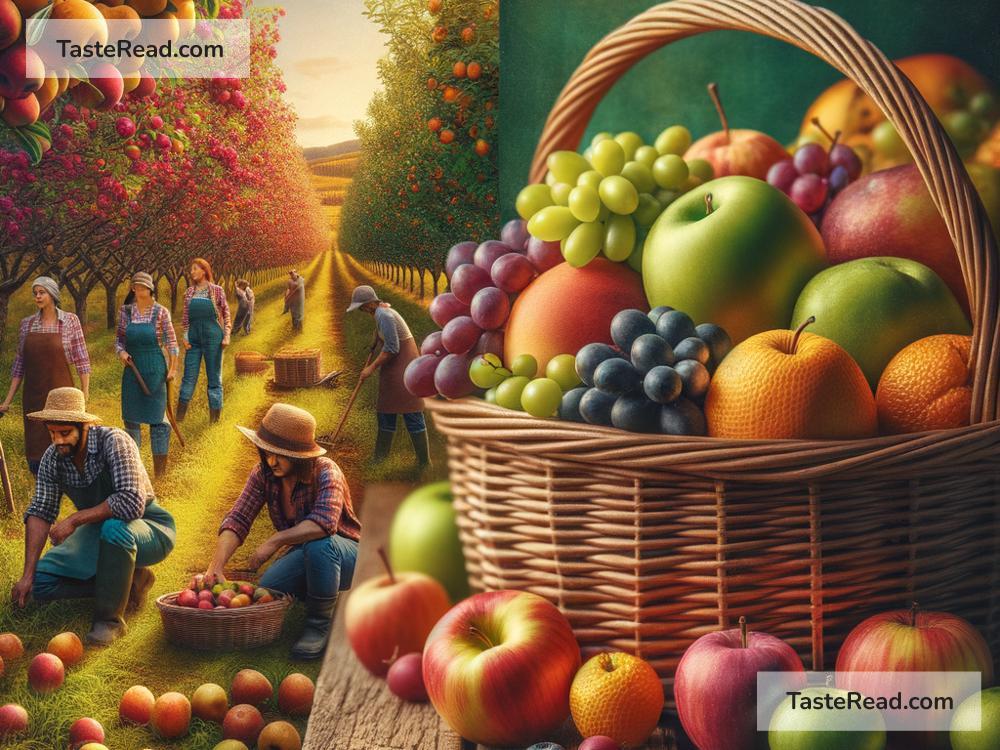How Fruit Growing Techniques Impact Taste: A Delicious Journey from Farm to Table
When you bite into a juicy apple or enjoy the sweetness of a ripe mango, have you ever wondered why some fruits taste better than others? Is it luck or magic? The answer lies in how they are grown! Farmers use various techniques to cultivate fruits, and these methods have a big impact on their taste, texture, and aroma. Growing fruit isn’t just about planting seeds; it’s a blend of science, skill, and care. Let’s explore how fruit growing techniques impact taste.
Choosing the Right Variety Matters
Every fruit has many varieties, and each one tastes different. For example, apples can be sweet like Honeycrisp or tangy like Granny Smith. Farmers decide which variety to plant based on factors like climate, soil, and market demand. Some varieties are naturally sweeter, while others have a stronger flavor. This choice sets the stage for how flavorful the fruit will be when it’s ready to harvest.
Soil: The Foundation of Flavor
The quality of soil plays a huge role in how fruits taste. Healthy, nutrient-rich soil helps plants grow strong and produce flavorful fruits. When soil has the right balance of minerals like nitrogen, potassium, and phosphorus, fruits absorb these nutrients and develop better flavor. For example, oranges grown in volcanic soil often have a more intense taste because of the unique minerals in the ground.
Farmers also use techniques to improve the soil, like adding compost or organic matter. Good soil doesn’t just make fruits taste better; it also helps them grow bigger and juicier.
Watering Techniques: Too Much or Too Little?
Water is life for plants, but the amount of water a fruit gets can change its flavor. If a fruit tree gets too much water, the fruit may taste bland because the extra water dilutes the sugar content. On the other hand, if a fruit tree receives just the right amount of water, the sugars concentrate, making the fruit sweeter.
Some farmers use a method called “controlled irrigation,” where they carefully manage how much water the trees get. By reducing water during certain periods, farmers can encourage fruits to become sweeter and more flavorful.
Sunshine and Climate: Nature’s Flavor Boosters
Sunshine is another key ingredient in a fruit’s flavor. Fruits need sunlight to produce sugars during photosynthesis, which is the process plants use to turn sunlight into food. Fruits grown in sunny climates often taste sweeter because they’ve had more time to build up their sugar content.
Climate also matters a lot. For example, strawberries grown in cooler weather are often more flavorful than those grown in warm climates. That’s because slower growth in cooler conditions helps the fruit develop a richer taste. Farmers carefully choose where to grow fruits based on how the climate will affect the flavor.
Pruning: Giving Fruits Space to Shine
Pruning means cutting off certain branches or leaves of a tree to give the remaining parts more light and air. This technique might seem simple, but it has a big impact on fruit taste. By pruning, farmers make sure that each fruit receives enough sunlight and nutrients. This leads to tastier and higher-quality fruits.
For example, grape farmers prune their vines to ensure fewer grapes on each bunch. This helps concentrate the sugars in the remaining grapes, making them sweeter and perfect for wine-making.
Harvest Time: The Perfect Moment for Flavor
When fruits are harvested is another major factor in how they taste. Picking fruits too early can result in bland flavors because the sugars haven’t fully developed. On the other hand, waiting too long can lead to overly soft or mushy fruits. Farmers have to time the harvest perfectly to get the best flavor.
For fruits like bananas and avocados, farmers often harvest them when they’re still slightly unripe, as these fruits continue to ripen after picking. However, fruits like berries or peaches taste best when picked at their peak—they won’t ripen much further once off the tree.
Organic vs. Conventional Growing: Does It Affect Taste?
Many people wonder if organic fruits taste better than conventionally grown ones. Organic farming avoids chemical pesticides and fertilizers, which some believe leads to better flavor. Organic farmers often focus on enriching the soil naturally, which can enhance taste. While it depends on the specific fruit and farm, studies suggest organic fruits sometimes have a richer, more natural flavor compared to conventional ones.
Post-Harvest Handling: Keeping the Flavor Fresh
The way fruits are handled after harvesting also impacts their taste. If fruits are stored improperly or transported over long distances, their quality can decline. Bruising, temperature changes, and prolonged storage can make fruits lose their natural sweetness or become less juicy.
For this reason, local and fresh fruits often taste better than those shipped from far away. Many farmers aim to get their fruits to consumers as quickly as possible to preserve their peak flavor.
A Taste of Science and Nature
From soil health to sunlight, water, and timing, every step in growing fruits affects their taste. Farmers use a mix of traditional knowledge and modern science to bring the best flavors to your table. So, the next time you enjoy a delicious piece of fruit, take a moment to appreciate the journey it took to become so tasty.
Farming isn’t just about growing food—it’s about creating experiences. And the more we learn about these growing techniques, the more we can savor each bite. Happy fruit-eating! 🍎🥭🍓


